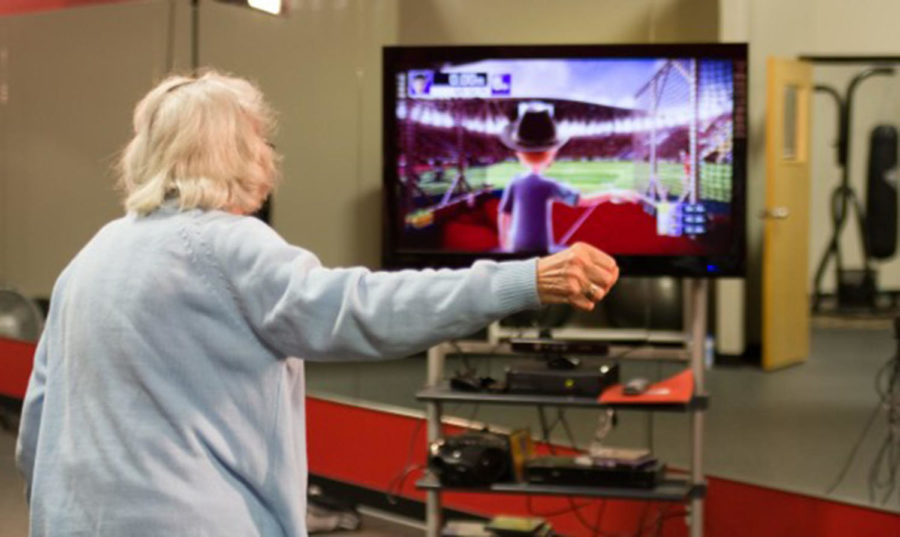LIFE video game program keeps older adults moving
A participant in the LIFE program plays with Xbox Kinnect.
October 24, 2013
Three ISU professors are working to teach older adults how to live a more active lifestyle.
Sarah Francis, assistant professor of food science and human nutrition; Jennifer Margrett, associate professor of human development and family studies; and Warren Franke, professor of kinesiology, developed the LIFE — Living well through Intergenerational Fitness and Exercise — program that teaches older adults how to be active through the use of video games.
The LIFE program is led by young adult volunteers who show the older adults how to use the Kinect for Xbox gaming system to play games. They also lead them in interactive games such as crosswords and storytelling.
“The goal is to increase physical activity in older adults, as well as offering benefits to the younger adults,” Francis said. “The program reduces negative stereotypes that younger adults hold about older adults and it actually promotes better expectations regarding aging.”
The three professors wanted to reach out to the older adults in retirement community centers, churches, wellness centers and congregate meal sites in rural areas that did not have the resources available to them for exercise and bring the program to them.
“With the Kinect, you can have multiple people playing. At a site with 10 participants, you may have two people playing but the rest of the people can shadow play. That way everyone can participate,” Franke said.
As a result of the first pilot program, the LIFE program created a website that contains practical tips and exercises that are available for anyone to use.
“The point is to increase the level of activity above what they would normally do in a way that is fun,” Franke said.
Ciara McCarty, junior in kinesiology and health, volunteered at a LIFE program site and said it was a great experience.
“I enjoyed seeing how much fun everyone was having. It was a fun environment and a good way to get to know everyone,” McCarty said.
“Two ladies in particular I really got to know. They went every day, so I learned a lot about them.”
Based on the researchers’ qualitative feedback, the older adults preferred the sports activities such as basketball and soccer. There were also results of participants reporting less arthritic pain and having better moods after the program.
“Physical activity helps every part of your life, including your mental health and outlook. If you are taking care of yourself throughout your whole life, you’re going to see those benefits early on,” Margrett said.
Franke suggests that, in one week, 75 minutes of vigorous exercise, such as running and hiking, or 150 minutes of moderate exercise, including fast walking and domestic chores, is necessary for a healthy lifestyle.
Participating in physical activity can reduce future issues with mobility, help prevent major chronic diseases and can even reduce financial costs.
“The key thing is to just move,” Franke said. “Something is better than nothing and a little more is better than a little less.”

















